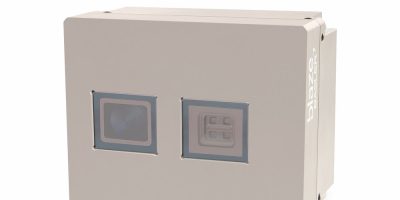Time of flight camera improves light for real time 3D data
High precision, low power consumption and low heat generation are combined in the latest blaze cameras from Basler.
The 850nm blaze time of flight (ToF) camera offers improved stray light robustness for indoor applications and delivers precise, high resolution 3D data in real time, said the company.
Both its compact IP67 housing and near-infra red operation at 850nm make it suitable for indoor applications in logistics and factory automation. It has a large 67 degree x 51 degree field of view and a working distance ranging from 0.3 to 10 meters, enabling the camera to capture depth data of large objects and entire scenes at once.
The Sony IMX556-DepthSense sensor provides precise 2D and 3D data in one shot, consisting of distance, intensity, and confidence maps. The light source (VCSEL diodes) and lens are already integrated in the new variant, enabling precise 3D measurements based on the ToF method.
The 850nm blaze time of flight (ToF) camera also includes dual exposure HDR (for scenes with large differences in brightness) and hardware trigger which are claimed to deliver precisely synchronised images in VGA resolution. All blaze camera models feature new bandwidth control and latency reduction, allowing for optimal GigE load management and improved real time capability. The pylon camera software suite enables the ease of set-up and provides full 3D functionality, Basler added.
The 850nm camera joins the 940nm version in Basler’s 3D product portfolio which also includes a RGB solution for 3D imaging in true colour. This combines the spatial depth data from the blaze ToF camera with RGB data from a colour camera, such as the Basler ace 2. The result is a coloured 3D point cloud in which each 3D point is assigned a colour value, especially useful to perform classifications additionally based on object colour, or to simplify scene understanding.
Basler also offers a stereo camera series in the 3D range, with two models designed specifically for image-guided robotics.
Basler is an experienced expert in computer vision. The company offers a broad, co-ordinated portfolio of vision hardware and software. In addition, it enables customers to solve their vision application issues by developing customer-specific products or solutions.
Founded in 1988, the Basler Group’s headquarters are in Ahrensburg, Germany, and the company has sales and development locations throughout Europe, Asia, and North America.




